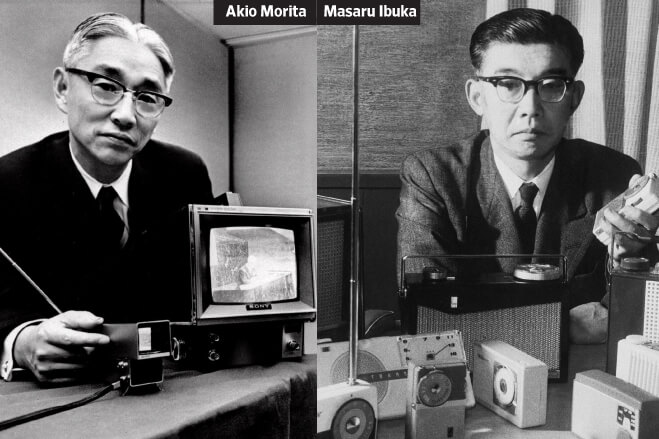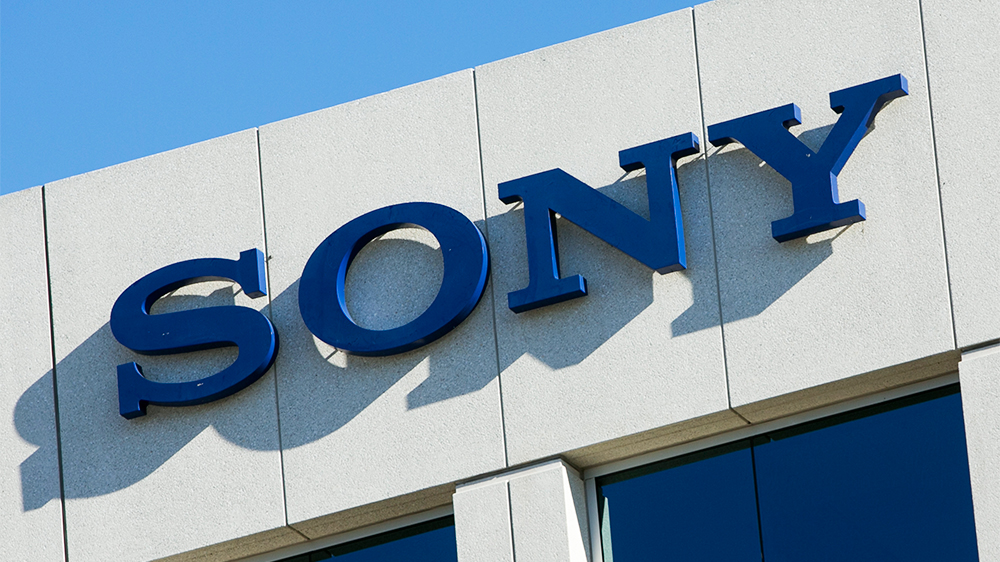Sony is a multinational conglomerate corporation that is based in Tokyo, Japan. The company was founded in 1946 by Masaru Ibuka and Akio Morita, and has since become one of the world’s largest and most successful electronics companies.
Originally, Sony was known as Tokyo Telecommunications Engineering Corp., and the company’s early products included telecommunications equipment and other electronic components. However, in 1958, the company changed its name to Sony Corporation, and began producing consumer electronics products, such as radios and transistor TVs.
One of Sony’s most iconic products is the Walkman, which was introduced in 1979 and revolutionized the way people listened to music on the go. The Walkman was a portable cassette player that allowed users to listen to music through headphones, and quickly became a global sensation.
Over the years, Sony has continued to innovate and introduce new products that have become household names. These include the PlayStation gaming console, the Bravia line of high-definition televisions, and the Cyber-shot line of digital cameras.
Sony has also diversified its product offerings to include a range of other consumer and professional electronics, as well as entertainment and financial services. The company has a strong presence in the music and film industries, and is the parent company of Sony Music Entertainment, Sony Pictures, and Sony/ATV Music Publishing.
In recent years, Sony has continued to push the boundaries of innovation and technology, with products such as the Sony Xperia line of smartphones and the Sony Alpha line of mirrorless cameras. The company is committed to creating products that are not only innovative and high-quality, but also sustainable and socially responsible.
Overall, Sony is a company that has made a significant impact on the electronics industry and popular culture. Its products have become synonymous with quality and innovation, and its brand is recognized and trusted by consumers around the world.
Founding History of Sony Corporation
Pre-Sony era (1945-1946): In 1945, Masaru Ibuka and Akio Morita, who were both working for a military technology company in Japan during World War II, began discussing the potential of building their own electronics company. Ibuka had studied physics at the University of Tokyo and had a background in electronics, while Morita had a degree in physics and had experience in marketing and sales. After the war ended, the two men began working on a plan to launch their own company.

Tokyo Telecommunications Engineering Corp. (1946-1958): Ibuka and Morita founded Tokyo Telecommunications Engineering Corp. (Totsuko) in 1946, with the goal of producing telecommunications equipment and other electronic components. The company’s first product was an electric rice cooker, which was a commercial failure. Totsuko then began producing other products, including tape recorders and transistor radios.
Early consumer electronics (1958-1960s): In 1958, Totsuko changed its name to Sony Corporation, which was derived from the Latin word “sonus,” meaning sound, and the American slang term “sonny,” meaning young man. Sony began producing small, portable consumer electronics products, such as transistor radios and TVs. The company’s products were marketed as high-quality and innovative, and quickly gained popularity among consumers in Japan and around the world.
Introduction of the Walkman (1970s): In 1979, Sony introduced the Walkman, a portable cassette player that allowed users to listen to music through headphones. The Walkman was a game-changer in the world of personal audio, and quickly became a global sensation. Sony’s marketing for the Walkman emphasized its portability, convenience, and personalization, and helped cement the company’s reputation as an innovative and cutting-edge electronics company.
Expansion into entertainment (1980s-1990s): In the 1980s and 1990s, Sony expanded its product offerings to include a range of other consumer and professional electronics, as well as entertainment and financial services. The company acquired CBS Records in 1988, forming Sony Music Entertainment, and acquired Columbia Pictures in 1989, forming Sony Pictures. Sony also expanded into the video game industry, with the introduction of the PlayStation gaming console in 1994.
Diversification and innovation (2000s-present): In recent years, Sony has continued to diversify its product offerings, with a focus on innovation and sustainability. The company has introduced a range of new products, including the Sony Xperia line of smartphones, the Sony Alpha line of mirrorless cameras, and the Sony Bravia line of high-definition televisions. Sony is also committed to reducing its environmental impact, and has set ambitious goals to achieve carbon neutrality by 2050.
Overall, Sony’s founding history is characterized by a commitment to innovation, quality, and customer satisfaction. The company has consistently pushed the boundaries of technology and design, and has become one of the world’s most recognized and respected brands.
Different business segments of Sony Corporation
Sony Corporation is a diversified global company that operates in several business segments. Here are the details of the different segments of Sony’s business as of today:
Electronics Products and Solutions: This segment comprises a wide range of consumer and professional electronics products, including TVs, home audio systems, headphones, digital cameras, camcorders, projectors, gaming consoles, smartphones, and tablets. In addition, this segment also includes Sony’s Imaging and Sensing Solutions business, which produces image sensors and other camera components for use in smartphones, digital cameras, and other devices.
Game and Network Services: This segment includes Sony’s gaming business, which operates the PlayStation brand of gaming consoles and software, as well as its network services business, which provides online gaming, digital content distribution, and cloud-based streaming services.
Music: Sony’s music business operates under the Sony Music Entertainment (SME) brand, and includes record labels such as Columbia Records, RCA Records, and Epic Records. SME produces and distributes music in various genres, including pop, rock, hip-hop, and country, and also operates music publishing and management businesses.
Pictures: Sony Pictures is the company’s motion picture and television production and distribution business. It includes Columbia Pictures, TriStar Pictures, and Screen Gems, among other brands, and produces and distributes films, television shows, and digital content.
Financial Services: Sony Financial Holdings is a holding company for several financial services subsidiaries, including Sony Life Insurance, Sony Assurance, and Sony Bank. These companies provide insurance, banking, and other financial services in Japan and other countries.
Others: This segment includes various other businesses that do not fit into the other segments, such as Sony’s semiconductor business, which produces semiconductors and other electronic components, and its AI and Robotics business, which develops and markets artificial intelligence and robotics products.
Overall, Sony’s business is diverse and spans several different industries. The company’s focus on innovation, quality, and customer satisfaction has helped it establish itself as a leader in many of these industries, and its strong brand recognition and reputation continue to be key assets for the company.
Walkman – A sensation that exploded Sony into the world
The introduction of the Walkman in 1979 played a significant role in establishing Sony as a leading consumer electronics brand. Before the Walkman, Sony was primarily known for producing high-quality audio equipment and professional recording gear. However, the Walkman transformed Sony into a household name by making personal music listening a ubiquitous experience.
The Walkman was the first portable music player that allowed users to listen to music on the go. It was a revolutionary product that changed the way people consumed music. The Walkman made it possible for people to listen to music wherever and whenever they wanted, whether on the bus, train, or walking down the street. It was also a status symbol and became a must-have accessory for music lovers.
The success of the Walkman helped Sony to establish itself as a leading brand in the consumer electronics industry. The company’s focus on innovation, quality, and design helped to create a loyal customer base that continues to be associated with Sony today. The Walkman paved the way for other innovative Sony products, such as the CD player, digital camera, and PlayStation gaming console.
In addition, the marketing and advertising campaigns surrounding the Walkman were also instrumental in establishing Sony as a brand. The “Walkman” brand name itself became synonymous with personal music listening, and Sony’s marketing campaigns emphasized the product’s portability, quality, and convenience. The company also used high-profile sponsorships and partnerships to promote the Walkman, such as sponsoring the Sony-sponsored 1984 Olympic Games in Los Angeles.
Overall, the Walkman played a crucial role in establishing Sony as a brand and transforming the company into a consumer electronics powerhouse. The product’s innovative design, quality, and convenience captured the public’s imagination and helped to create a loyal customer base that remains associated with the Sony brand to this day.
Playstation as a game-changer for Sony
The introduction of the PlayStation gaming console in 1994 marked a significant turning point for Sony, as it helped to establish the company as a major player in the gaming industry. Here are some ways in which the introduction of the PlayStation changed the game for Sony:
Diversified Sony’s product portfolio: The introduction of the PlayStation allowed Sony to diversify its product portfolio beyond its traditional strengths in consumer electronics and entertainment. The gaming industry was a rapidly growing market, and Sony recognized the potential for growth in this area.
Established Sony as a gaming brand: The success of the PlayStation helped to establish Sony as a gaming brand, with a loyal following of gamers. The PlayStation quickly became one of the most popular gaming consoles of its time, due to its innovative design, powerful hardware, and extensive library of games.
Created a new revenue stream: The PlayStation generated significant revenue for Sony, with sales of the console and games contributing to the company’s bottom line. This helped to diversify Sony’s revenue streams and reduce its reliance on other products.
Enhanced Sony’s reputation for innovation: The PlayStation was known for its innovative design and cutting-edge technology, such as its use of CD-ROMs for game storage. This enhanced Sony’s reputation for innovation, and helped to establish the company as a leader in the technology industry.
Led to the creation of new products: The success of the PlayStation led Sony to create new gaming-related products, such as the PlayStation 2, PlayStation 3, and PlayStation 4 consoles, as well as gaming peripherals such as the PlayStation VR headset.
Overall, the introduction of the PlayStation changed the game for Sony in many ways, from diversifying its product portfolio to establishing the company as a major player in the gaming industry. The success of the PlayStation also helped to enhance Sony’s reputation for innovation and creativity, and contributed to the company’s overall growth and success.
How big is Sony?
Sony Corporation is one of the largest and most influential multinational conglomerate corporations in the world, with a diverse portfolio of products and services that spans multiple industries. Here are some key details about the size and scope of Sony Corporation:
Revenue: In the fiscal year 2020, Sony Corporation generated revenue of approximately $88.3 billion USD. The company’s revenue has grown steadily over the past few years, due in part to its successful gaming, music, and electronics divisions.
Employees: Sony Corporation has over 110,000 employees worldwide, with operations in over 200 countries and regions. The company has a diverse workforce that includes engineers, designers, marketers, and other professionals.
Divisions: Sony Corporation is organized into several divisions, each focused on a different product or service. Some of the company’s most well-known divisions include Sony Electronics, Sony Pictures, Sony Music, and Sony Interactive Entertainment (which oversees the PlayStation gaming division).
Products and services: Sony Corporation offers a wide range of products and services, including consumer electronics (such as TVs, smartphones, and cameras), gaming consoles and software, music and entertainment, and financial services. The company is also involved in a variety of other industries, such as semiconductors, medical technology, and robotics.
Global reach: Sony Corporation is a truly global company, with operations in North America, Europe, Asia, and other regions. The company has a strong presence in many countries, and is often seen as a symbol of Japanese innovation and technology.
Overall, Sony Corporation is a major player in the global economy, with a diverse portfolio of products and services that spans multiple industries. The company’s size, scope, and global reach have helped to establish it as one of the most recognizable and influential brands in the world.
Also Read: Philips – The Global Consumer Electronics Brand With Innovation At Heart
To read more content like this, subscribe to our newsletter



